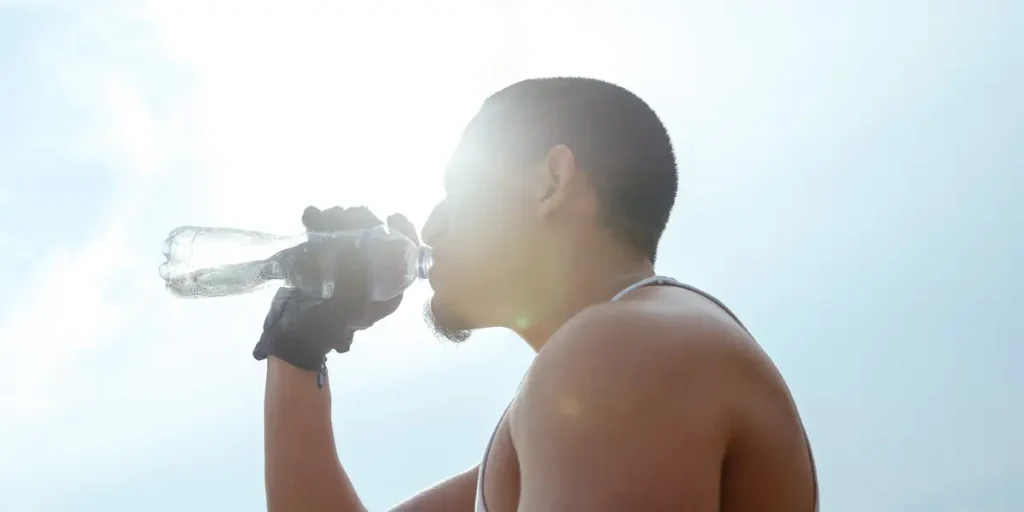Why Elite Athletes Curb Water Intake After 4 p.m.

Elite athletes are known for their disciplined training routines, strict diets, and an ever-present focus on performance optimization. Yet, one of the lesser-known habits that many top athletes share is limiting their water intake after 4 p.m. While it may seem counterintuitive for individuals who need to stay hydrated, there are several compelling reasons behind this strategy.
The Importance of Hydration for Athletes
Hydration is an essential part of any athlete’s regimen. Water makes up a significant portion of muscle tissue, assists with nutrient transport, and regulates body temperature, all of which are crucial during training and competition. For elite athletes, maintaining proper hydration levels is vital for peak performance, recovery, and preventing injury.
However, while staying hydrated throughout the day is key, many athletes have discovered that managing hydration in the hours leading up to bedtime plays a significant role in their overall health and recovery.
Disrupted Sleep Due to Nighttime Water Intake
One of the main reasons elite athletes cut off water intake in the late afternoon is to avoid interruptions to their sleep. Proper sleep is paramount for muscle repair, cognitive function, and overall recovery. Drinking large amounts of water before bed can lead to frequent trips to the bathroom during the night, disrupting sleep patterns and reducing the quality of rest.
For athletes who have intense training schedules, sleep is considered as important, if not more important, than their physical training. Even the smallest disruptions to sleep can have a negative effect on performance the following day.
The Role of Hydration in Muscle Recovery
Hydration isn’t just important during physical activity; it also plays a critical role in muscle recovery. When athletes drink excessive amounts of water in the evening, it may delay their body’s natural fluid regulation process. This can interfere with the body’s ability to adequately replenish electrolytes and nutrients during the night.
Athletes who limit water intake after 4 p.m. allow their body to better balance fluid and electrolyte levels overnight, which aids in muscle recovery and helps prevent bloating or discomfort that might arise from excessive water retention.
Managing the Body’s Electrolyte Balance
Along with limiting water intake, elite athletes are mindful of their electrolyte balance, especially in the hours leading up to bedtime. Electrolytes are minerals like sodium, potassium, and magnesium that play a crucial role in maintaining fluid balance, nerve function, and muscle contractions.
When athletes consume excessive amounts of water too close to bedtime, it can dilute their electrolyte balance, leading to issues like muscle cramps, dizziness, or disrupted sleep. By curbing water intake after a certain hour, athletes allow their body to better maintain this delicate balance throughout the night.
Maintaining Proper Hydration Before 4 p.m.
While cutting back on water intake in the evening is common, elite athletes are careful to stay hydrated earlier in the day. They typically focus on drinking the majority of their water intake in the morning and afternoon, ensuring their bodies are properly fueled for training, competition, and recovery.
Many athletes also incorporate electrolyte-rich beverages into their routine, especially during intense training sessions, to help maintain hydration and support muscle function. Proper hydration throughout the day ensures that athletes do not experience dehydration during the night while allowing them to avoid the need for large water intake after 4 p.m.
Conclusion: Why Timing Matters
Hydration is undeniably important for athletic performance, but timing is everything. For elite athletes, the practice of limiting water intake after 4 p.m. is a strategic move aimed at optimizing sleep, muscle recovery, and electrolyte balance. By managing their hydration throughout the day, athletes can ensure they stay at the top of their game while giving their bodies the rest and recovery they need.
While this practice might not be suitable for everyone, it underscores the importance of not just drinking enough water, but drinking it at the right time. For those in pursuit of peak performance, it’s all about balancing hydration, rest, and recovery.

